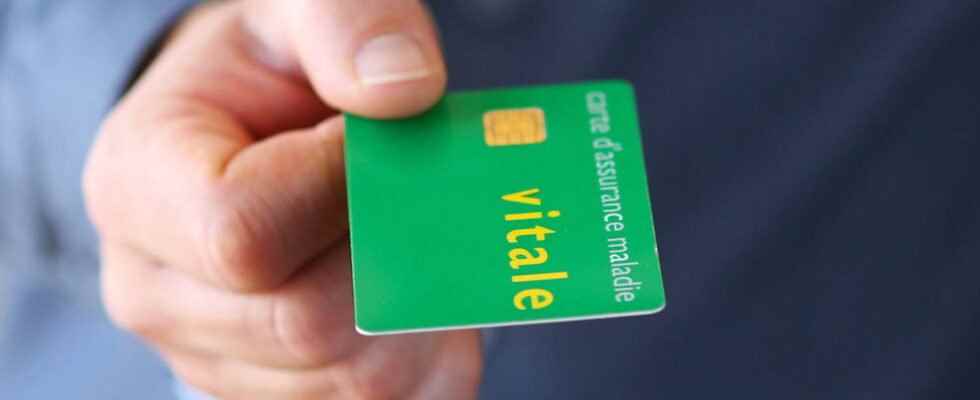Have you received an email informing you that a new Carte Vitale is available to you? Above all, don’t answer it: this is a well-known phishing scam aimed at getting you paid subscriptions.
The best dishes are made in old pots: the popular saying is also valid in our digital world, and especially for crooks who do not hesitate to use certain recipes, however well known, to abuse new victims. So, while we might have thought it was completely stale – especially since UFC-Que Choisir denounced her last year -, the “Carte Vitale V3” scam has made a comeback in recent weeks, in a barely renewed formula, just to track down new prey, as the specialized site indicates Zataz in a well-detailed alert.
Its principle is simple and perfectly well established. It all starts with an email supposed to be sent by L’Assurance Maladie and informing the recipient that a new Carte Vitale is available, subject to updating some information. As always in this kind of scam, the message takes the colors and the graphic codes of the alleged sender, in this case Ameli, with a very selling text: “The public service has finally unveiled its new card. The new V3 card benefits from the latest technological advances in terms of security. Reliable, practical and secure, your V3 card is to be presented to all healthcare professionals. send, no more sticker to stick. It guarantees the reimbursement of your care within 24 hours. “ Basically nothing new compared to the current Carte Vitale which has exactly the same functions, but sufficiently attractive for victims with little or bad information, especially the elderly. Above all, this famous Carte Vitale V3 does not exist! Only two versions have been put into circulation since the creation of this precious card: one with a photo, the other without. It is indeed a question of a dematerialized version, therefore entirely digital, for use on mobile, but it is still being tested as explained. the Service-Public.fr site.
As always in phishing scams, the email invites you to click on a link, claiming additional information. Link which obviously leads to a web page imitating the interface of the Ameli site. From the outset, the information requested (last name, first name, address) should arouse suspicion because Assurance Maladie already has it. Ditto for the URL that begins with nouvelleecartev3nds.com, which absolutely does not correspond to the addresses used by L’Assurance Maladie. A detail to always check in case of doubt about the authenticity of an official site.
The freelance becomes clear when it comes to recovering the famous new card. Because there, it is asked to pay shipping costs – something that L’Assurance Maladie never does! – for home delivery by Colissimo or Chronopost. Modest costs (0.79 and 2.60 euros), and almost probable, which, by a clever cognitive bias, encourage the victim to choose the cheapest solution rather than questioning the legitimacy of the payment. This step is of course intended to recover bank data. But not to empty the associated account, as one might think. In fact, scammers use them to validate subscriptions to paid services through several bogus shops, all based in Cyprus and run by a company called Baltumo Limited. The time to notice the transactions on account statements, and the damage will already be done …
If you have received this type of deceptive email, do not respond, click on any link and delete the message! And to learn more about phishing and report scam attempts, check out our factsheet.
